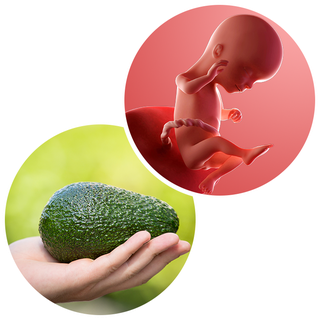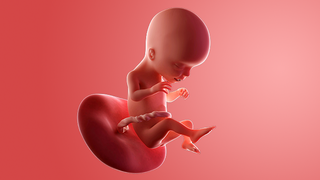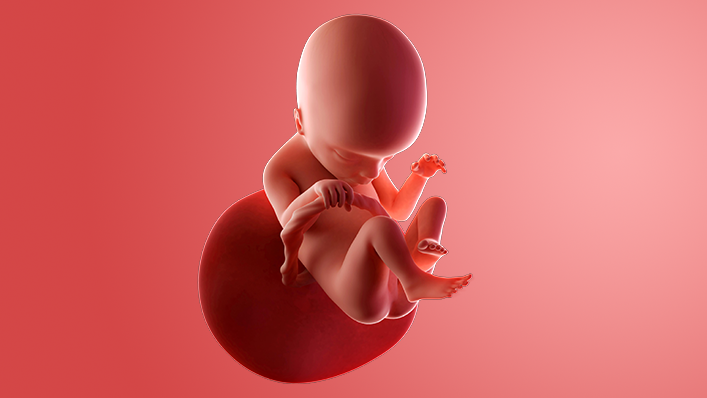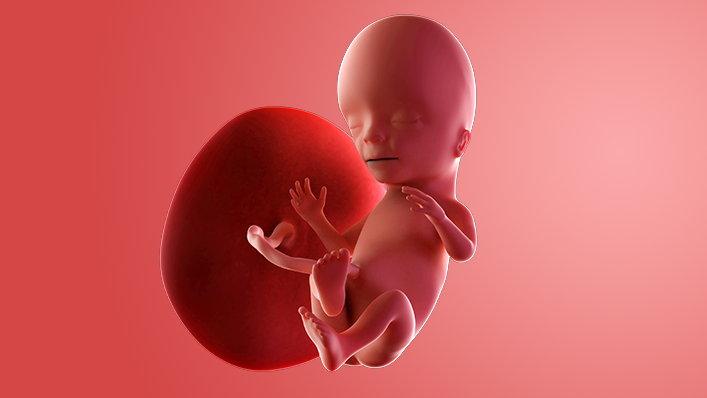What's happening in my body?
You may see a midwife around now, who will weigh you and discuss how you're getting on, and you might get to hear your baby's heartbeat for the first time.
You will also get the results of any blood tests that you had during your booking appointment.
You will probably have been offered a test for 3 infectious diseases: HIV, hepatitis B and syphilis. If an infection has been picked up, then your midwife or doctor will talk to you about the best ways to protect your health and reduce the risk of passing on the infection to your baby.
Your blood pressure will be checked and you will need to provide a urine sample. This will be checked for signs of protein that could show if you're at risk of developing a dangerous condition called pre-eclampsia.
Constipation
Constipation is common in early pregnancy – it's when you find it really hard to poo. It can make you feel bloated, sick and give you tummy ache.
Try to:
- eat foods that are high in fibre, like wholemeal bread, fruit and veg, beans and lentils
- exercise regularly
- drink lots of water
- avoid iron supplements (but talk to your doctor or midwife before ditching any medication)
Read more about easing constipation in pregnancy on the NHS website.
Carbon monoxide alert
You cannot see, smell or taste it – but carbon monoxide gas is a killer. You can be exposed to this harmful gas through breathing in cigarette smoke, and can also come into contact with it through faulty or poorly ventilated cooking or heating appliances.
Routine carbon monoxide tests are now done during midwife appoints.
If you've already got a carbon monoxide detector at home, check it's working. There's usually a test button – if it does not beep, the battery may need replacing or you need a new detector. You can pick one up at most supermarkets.
2nd trimester pregnancy symptoms (at 16 weeks)
Everyone's pregnancy is different but if you feel unwell and it's getting you down, speak to your doctor or midwife.
Your pregnancy symptoms may include:
- swollen and bleeding gums (week 13's page has information about gum health)
- pains on the side of your belly, caused by your expanding womb (known as 'round ligament pains')
- headaches (read about headaches in pregnancy on NHS.uk)
- nosebleeds
- feeling bloated (read how to cope with bloating on week 10's page and constipation)
- indigestion and heartburn (read about dealing with indigestion and heartburn on week 25's page)
- sore breasts
- leg cramps
- feeling hot
- dizziness
- swollen hands and feet
- urine infections
- vaginal infections (week 15's page explains about how to treat vaginal infections)
- darkened skin on your face or brown patches – this is known as chloasma or the "mask of pregnancy"
- greasier, spotty skin
- thicker and shinier hair
You may also experience symptoms from earlier weeks, such as:
- morning sickness (read about dealing with morning sickness on week 6's page)
- weird pregnancy cravings (read about pregnancy cravings on week 5's page)
- a heightened sense of smell
- mood swings (week 8's page has information on mood swings)
- a white milky pregnancy discharge from your vagina and light spotting (seek medical advice for any bleeding)
What does my baby look like?
Your baby, or foetus, is around 11.6cm long from head to bottom, which is the size of an avocado.
Your baby is starting to pull faces now, but any smiling or frowning will be completely random, as there's no muscle control yet.
The nervous system continues to develop, and this enables your baby to start moving their arms and legs. Your baby's hands can form fists and they may start punching around inside you too.
You might be able to feel your baby kicking from week 17 onwards.

Action stations
More in week-by-week

Week 17
You might start to feel your baby move now. You will not be able to tell exactly what your baby's up to, but soon you could be feeling every kick, punch, hiccup and somersault.
More in week-by-week guide to pregnancy


